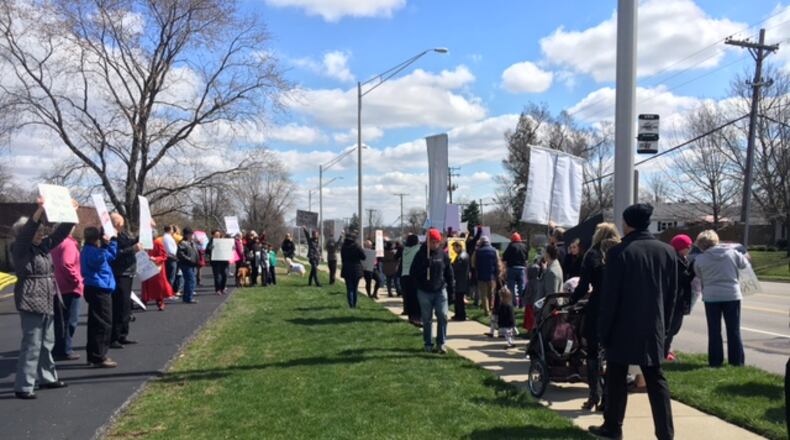In 2016, Judge Mary Wiseman allowed Women’s Med to remain open as it fought the state’s effort to take its operating license. The clinic had filed an appeal after the state health director revoked the Women’s Med license for alleged violations of transfer agreement and backup physician rules.
MORE: President Trump coming to Ohio next week
State Rep. Niraj Antani, R-Miamisburg, and Margie Christie, assistant executive director of Dayton Right to Life, are among those seeking to close the clinic.
“The big picture here is that this is the next step in a long series of steps in the license revocation and closure of the Women’s Med Center,” Antani said. “So, what will then happen regardless of who loses, it will probably be appealed to the appellate court, and then it will probably be decided by the supreme court.”
Restrictions adopted by the Ohio legislature mandate that abortion clinics have written transfer agreements with hospitals in case of emergencies.
MORE: UPDATE: Pharmacy middlemen could lose billions in Ohio Medicaid contracts
Jaime Miracle, deputy director of NARAL Pro-Choice Ohio, said the inability of Women’s Med to get a transfer agreement is a matter of politics, not about the health of women.
“So, because of the religious nature of some of the hospitals in the area and just federal politics and those kinds of things, the Women’s Med center of Dayton is unable to secure this medically unnecessary transfer agreement and so, the state of Ohio moved to close the facility and that is what brought us to court,” she said. “It’s all politics.”
Christie said the Ohio Supreme Court has issued rulings on two cases that solidify the state’s restrictions on abortion clinics and could lead to further efforts to close more clinics, including Women’s Med.
In September 2015, the Ohio Department of Health revoked the license of Women’s Med, Christie said. After an appeals hearing in April 2016, a “hearing examiner ruled that the Ohio Department of Health had the authority to shutter the clinic,” Christie said.
MORE: 7 big area projects that opened or made major progress this summer
The other key ruling, she said, regarded transfer agreements.
The “Ohio Supreme Court just ruled that transfer agreements are constitutional, so that really is a settled question,” Antani said. “If the Women’s Med center was able to comply, they would be able to stay open. There is an abortion clinic in Cleveland that was able to comply with the law.”
Miracle disagreed, saying transfer agreements are not medically necessary.
“I call them medically unnecessary because every hospital must, by federal law, take any patient transfer via ambulance, so you don’t need to have a transfer agreement between a medical provider and a hospital in order to transport a patient in an emergency situation,” Miracle said.
MORE: Huber Heights attorney: Janell Smith recall to make November ballot, referendum still possible
She said that since 2011, half the clinics in the state have closed. She believes the politics of Gov. John Kasich and Attorney General Mike DeWine have helped the anti-abortion movement close the clinics.
“Since they got into office, half of the clinics in our state have closed,” Miracle said. “The loss of this clinic in Dayton would be devastating, not just for women in Dayton, but in the region because it provides high quality medical care to the people they serve.”
She argues that it is also wrong to make the potential closure of the clinic a religious argument.
“You can’t argue that this is a religious freedom argument when you are forcing your religious beliefs on others,” Miracle said.
MORE: Grand jury declines to indict officer in deadly Kettering shooting
Antani and Christie want to see the clinics closed to prevent abortions, but said the efforts are matters of health and law.
“ … This question is about protecting the health of a woman, and this transfer agreement has been found to be constitutional,” Antani said. “We believe the law protects women, and we believe that the court should follow the guidance from the Ohio Supreme Court and uphold the director of the Department of Health’s decision to close the clinic.”
Christie said, “The bottom line is that the Ohio Department of Health has the authority to permit or revoke licenses.”
MORE: Warren County families want quick action on transgender name changes
About the Author
